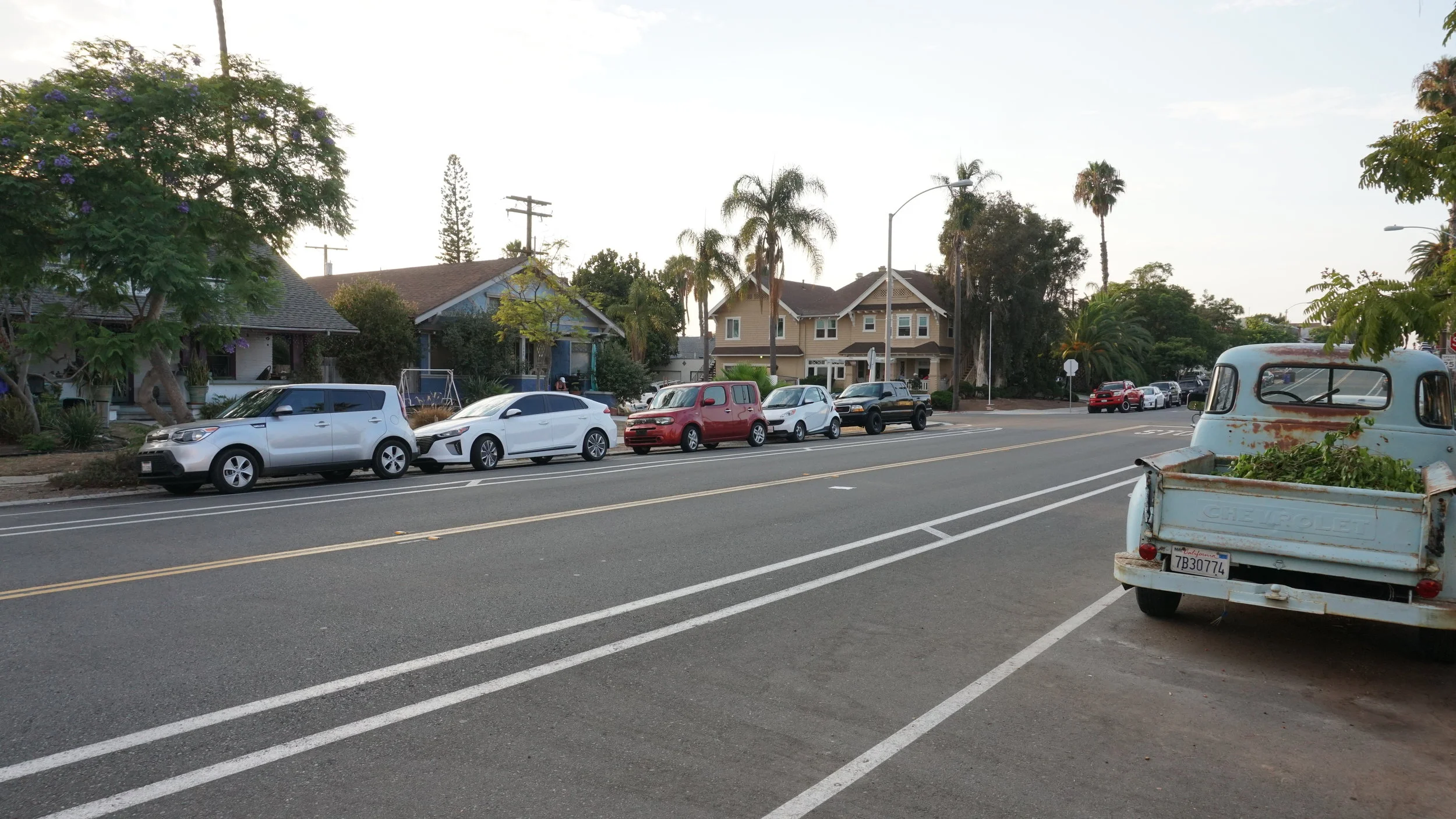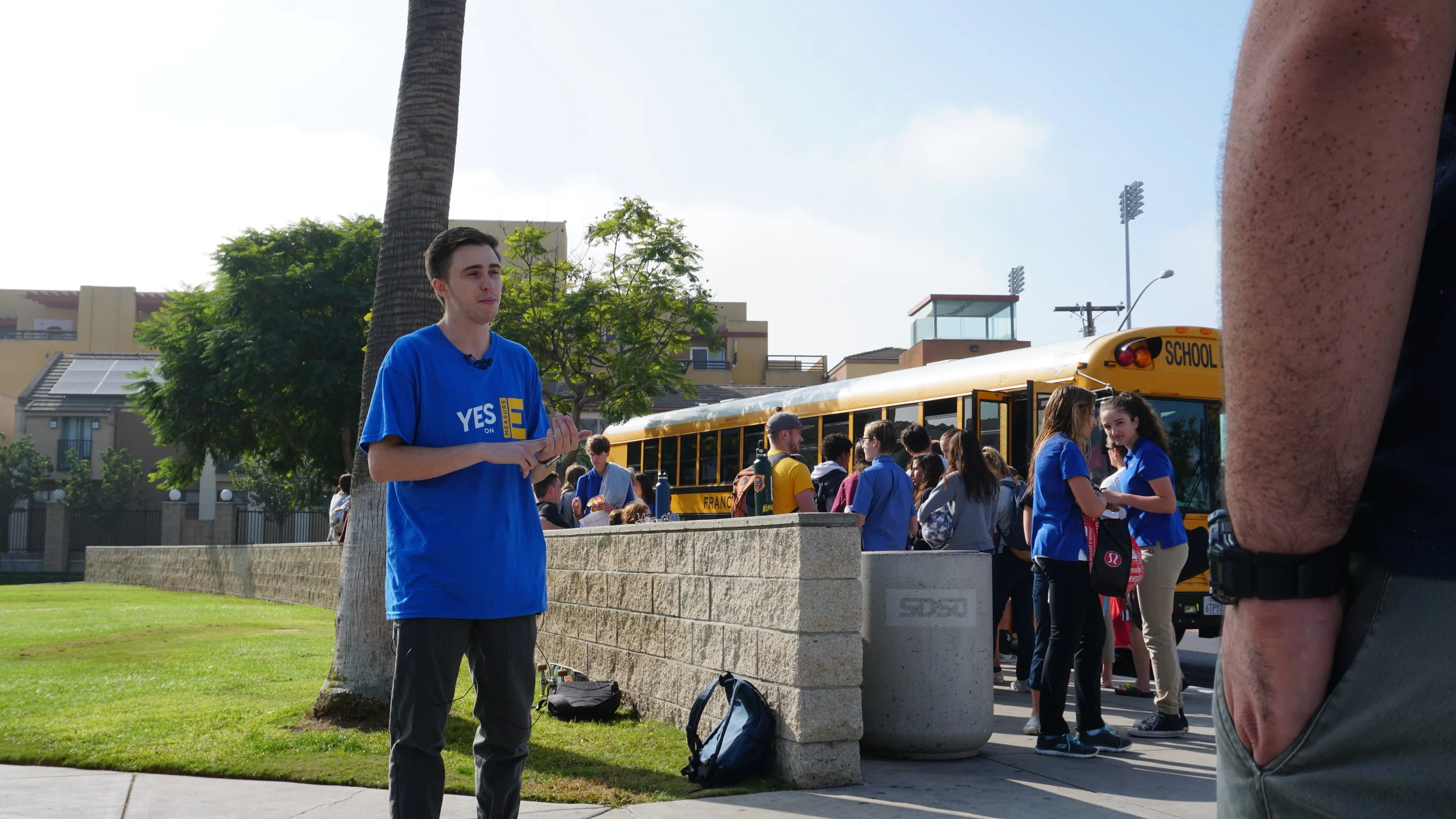School is Back in Session: San Diego Summarized | 8-27-18
Welcome to San Diego Summarized where each week we examine headlines from around the city:
It's that time of the year again.
Brown paper lunches, new backpacks, fresh haircuts and bleary eyes traditionally signal the start of a new school year.
New SDSU President Adela de la Torre officially began her position two months ago and has been outlining her objectives for the university in the coming weeks, months and years. In a range of recent interviews with local outlets, she's been talking about the apparently urgent need for SDSU to expand its footprint.
"Obviously, the Mission Valley issue is first and foremost in the short run... In other words, we’re coming from a little over 280 acres to get to 132 acres with an opportunity to develop something similar to what UC Davis is doing with Aggie Square."
Much has been made about the proposed expansion of San Diego State University onto the current SDCCU Stadium site in Mission Valley, but the disconnect between when this purportedly urgent growth is needed and when it is delivered bears mention.
Local developer JMI Realty once estimated that completion of the project would take 15 years.
There is also a report that was put out last year by the Legislative Analyst’s Office indicating to lawmakers none of the state’s public universities currently need to expand past their existing footprints, citing their facility use filings. It suggested they expand summer enrollment. Both systems have also been working to graduate their students faster to help with enrollment capacity.
In its report, the Legislative Analysts Office also pointed out CSU campuses are not meant for research under the California Master Plan for Higher Education, but rather bachelor’s and master’s degrees in the liberal arts. This suggests it would also not recommend an expansion to add research capacity.
SDSU West is not just about expanded research space though. The plan also calls for a new stadium for Aztec football and other athletics. One question that didn't quite make it into the KPBS story written by Megan Burks was posed to Twitter by user Ry Rivard.
Citations: Subsidies: https://t.co/fRLQ6Q1bBB Admits: https://t.co/6tBLwF2R0f Grad rate: https://t.co/KSJy58A3eK
— Ry Rivard (@ryrivard) August 7, 2018
De la Torre wasn't asked the question, but it bears considering.
In other news, the Voice of San Diego Podcast broke down the turmoil that has surrounded Republican Duncan Hunter in recent weeks following his indictment.
"The problem he faces is that he crossed the line that guides our country away from corruption," explained Editor in Chief Scott Lewis.
"Behind all the complexity of modern American campaign finance is one concept: to make sure money going into a politician’s pocket is only from his public salary, or legitimate personal income, and to prevent elected officials from partaking in bribery, the most basic form of corruption. The increasingly complex laws built around this concept are meant to both prevent corruption and build trust by preventing even the perception of corruption."
We leave off where we kicked off this week, with a final comment on the San Diego Unified School District's financial woes.
Will Huntsberry, a VoSD reporter, recently explained how Associated Student Body funds can be a meaningful boost for individual schools.
In theory, the money is at least partially controlled by students and spent fully for their benefit. In practice, the funds are often mismanaged and sometimes spent on staff-only events like parties or teacher training, according to a recent internal audit.
“It is so unfair for the kids,” Dan McAllister, head of the district’s audit and finance committee, told staff members at a meeting earlier this month. “It’s easy for adults to prey on these funds and basically use them like slush funds.”
The problems that particularly goaded McAllister and other committee members were the comingling of ASB accounts with teacher accounts, the most widespread problem identified in the audit, and inappropriate expenditures, which included spending money on teacher development, an item that is budgeted for in the regular district spending plan.
At the time the audit was conducted, the district didn’t forbid comingling, as long as teacher funds were specially earmarked in the accounts. But Crowe Horwath, an accounting firm that helped perform the audit, told the district it should stop the practice.






